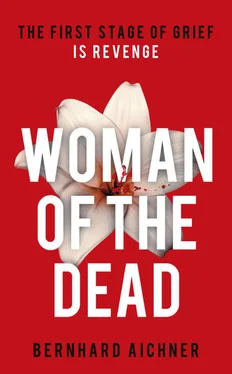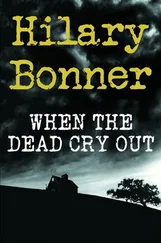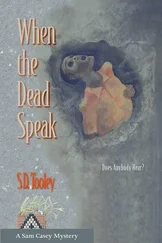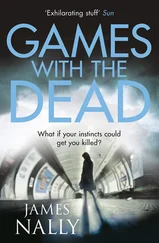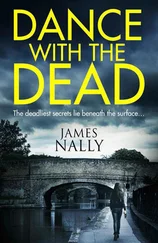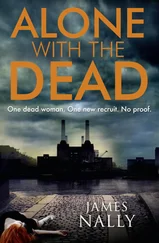Blum knows there is something troubling him, some cause for anxiety. It is gnawing away at him, silently and secretly, but Blum notices it. However hard he tries to leave his job behind when he comes home in the evening, he doesn’t always succeed. Blum can see that his thoughts are racing, that he can’t let something go, that it keeps taking his attention away from her and the children. Mark the policeman and his passion for his job. If anyone asks him what he does, he talks about it with enthusiasm. He says that there could be no better career in the world for him, nothing could stop him believing in justice. He loves what he does, he believes in it, and he is also ready to throw away the rule book now and then to achieve his aims. Mark believes in his instincts, and indeed he feels more than he thinks; logic isn’t always his strong point. He follows his gut, trusting to his nose, following up a remark, an impression. He believes in intuition, and he believes everything his father taught him, all the little details that he has observed over the years, discussing his father’s assessment of a situation over his evening beer, their long conversations about unsolved cases, even before Mark had really made up his mind to join the police. Karl was his teacher; he taught him to be human. He might have smiled at the idea of instinct when he was sixteen, but he took it to heart, and he does to this day. Sometimes you have to make decisions, Mark, and never mind what other people say, you will have to do as your heart tells you. No violence, no infringement of the law. Don’t kick a man when he is down. You’re on the side of the angels and you must never forget it. Karl made Mark a police officer, one of the best. And one who sometimes lets pity take precedence over the law. Mark always tries to discover the reason for a crime; he wants to know how it came to pass, why someone comes to be guilty of an offence. Why they will risk contempt and imprisonment. Why a man is prepared to attack a cash dispenser machine with a sledgehammer. Someone like Reza.
It was six years ago. Reza was simply after the money, or some of it, just enough to survive on. He was hungry and wanted to buy food. He had put the CCTV camera on the façade of the building out of action with a stone, and covered the camera in the cash dispenser with sticky tape. When Mark came along he was hitting the dispenser for the umpteenth time. With all his might, again and again, bringing the sledgehammer down where the cash would be. Reza never noticed Mark charging at him. Mark forced him back. It was like the war: a soldier on the ground, injured, desperate, the enemy above him with a gun in his hand. Mark was aiming it at Reza as he made him lie flat on his front and surrender.
Reza is a Bosnian, and for the last six years he has been working as an undertaker. He is Blum’s assistant, her right-hand man. He lost everything in the war, his brothers, his parents, his house. Everything burnt down; not a trace remained. The fact that he survived was nothing short of miraculous; he had hidden, had watched the Serbs slaughtering his countrymen. Overnight, he had to learn what war meant, how brutal life could be, how bloody and raucous death was. He had nothing now, no one who was there for him or cared for him, no roof over his head, no money, nothing. Nothing but blood and war and killing. He had often simply struck out on his own. It had been easy. Even before he was eighteen he had killed people in the war to survive. The memories came flooding back. Reza talked half the night through, laying out his life before their eyes. Mark and Blum listened, open-mouthed, as they heard what he had to say: incredible stories of a child toting a gun.
Mark had been on his way home. It was pure chance that he saw the man with the sledgehammer at all. A brief glance to his right changed everything, and Reza’s life took a sudden turn for the better. What Reza had expected didn’t happen. Instead of ending up in prison, he was in Mark and Blum’s villa. Instead of being kicked and humiliated, he was given food and a roof over his head. No one had seen them, no cameras, no passers-by. Nothing had been stolen; the only harm done was some damage to the cash dispenser. Mark had made his decision; he thought he was doing the right thing. The man on the ground represented no threat, and locking him up was no solution, so he took Reza home with him. He and Blum took the homeless Bosnian in, for the time being. At that time, no one guessed that he would stay for years. Blum made chicken soup, they sat at the kitchen table and listened to his story. Thank you , he kept saying, over and over again, thank you . Blum didn’t hesitate for a moment. Mark had decided to help him, and she did what Mark wanted. She was looking for a new employee at the time, which probably had as much influence on her decision as the fact that Reza was not afraid of death. It had been an everyday occurrence for so long that he did not fear the corpses on the preparation table. Everything came together. They extended the workshop under the Institute building to make it into living quarters for Reza. He had arrived.
Reza is standing in the garden, washing the hearse. He has been Blum’s devoted assistant for the past six years. Reza has improved everyone’s life; the clients, Karl and the children all like him. To Uma and Nela, Reza has always been there. The man with the funny accent is part of the family. He tosses them up in the air in summer, catches them as they come down, and smiles. Now Reza is carefully polishing the hearse. Mark is getting on his motorbike, Karl will take the girls to kindergarten, and Blum and Reza will finally attend to the old man lying in the cool room.
Blum is curious; she hasn’t seen the body yet, all she knows is that it was a gunshot to the head, the suicide of an eighty-four-year-old man who no longer wanted to live, who put an end to it all with a bullet. Reza and another driver collected him from the forensic lab yesterday. Blum is interested to know what his head looks like, how large a hole the bullet made. Only a little kiss stands between her and her next adventure, a kiss for Mark. I love you, he says again. Then he rides away.
Blum watches him go. Everything follows its normal course; the engine snarls as the man she loves sets off for his day’s work. When he has driven twenty metres, he switches on the indicator and turns back once, briefly, to look at Blum and Reza, then he steps on the gas. Blum is just about to go back into the house when she hears the bang.
She sees it, a Rover, a large black car. At first she can’t work out what is happening, she doesn’t understand. The car. The way Mark disappears. The way the big car pushes him aside, knocks him over. The way he falls, and the car drives over him. Reza beginning to run, with Blum in pursuit. Mark disappearing under the car, the loud sound of metal as the motorbike is dragged along. Mark’s body turns like a puppet, flies through the air like a toy. She runs to him, she wants to help, Reza tries to hold her back. And the car simply drives away, fast and for ever. The driver doesn’t stop to help, to express regret or horror. Just the back of a car driving away from an accident, from a motorbike lying smashed on the asphalt, from a lifeless body. He lies there, he doesn’t move. There is no sound. There’s nothing any more. All that was loud is silent again, as if nothing had happened. A fine day is beginning, the sun is shining. Mark lies in her arms. Blum screams.
Long and loud. For minutes on end her voice rises above the road. She pleads, she begs, her mouth opens and closes. Her upper body rocks forward, rocks back, Mark’s head is in her lap, blood everywhere. Tears everywhere, running down her cheeks, splashing him, wanting him to move, to breathe, to say something. She has taken off his helmet, she holds his face in her hands, she looks at him, looks into his empty eyes, she howls, she whimpers, she strokes his hair again and again with the palm of her hand. Everything is blood, everything is broken, nothing is whole any more.
Читать дальше
